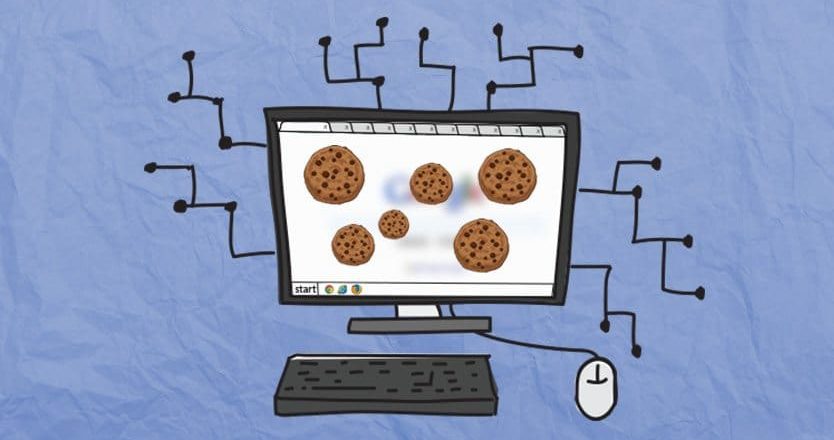Cookies, but not the kind you’re thinking of

When you say the word ‘cookies’, some people expect a treat. However, from a computer standpoint, they are not dessert products, and while they may not be physical goods, they do do vital duties of aiding anybody who is browsing the internet, and they may cause difficulties if they are not handled effectively.
Browser cookie??
A computer cookie is a tiny text file that is stored on the computer’s browser. It is also known as a browser cookie or an HTTP cookie. A cookie, regardless of its name, is a piece of data that allows a website to save details and information such as user preferences in order to identify them when they return. In layman’s terms, a cookie is a ‘memory’ that allows a website to recognize the user and reply appropriately.
Its purpose is to aid the browser in tracking and recording browsing actions. Many users choose to keep track of their surfing and downloading habits by saving their login information on regularly visited websites. Despite their monitoring and storing capabilities, fraudsters and cyber-attackers can use these cookies to find users, follow their web activity, and conduct cyber-crimes such as delivering harmful advertisements.
Web surfers believe that their online activities are continually watched for a variety of reasons. For example, advertising for items we have previously searched for online may appear in our browsers, and we may be shocked as to how the internet became aware of it. Some would even argue that the things we say will be used in online advertisements eventually.
However, the majority of internet users do not pay attention to the instructions provided in the ‘little boxes’ every time they come across them. To prevent users from misusing sensitive information, the tiny boxes include information describing how users’ data is acquired and managed via cookies.
Privacy issue with cookies
Computer cookies are intrinsically innocuous and cannot gather up personal information or expose one’s data on a computer on their own; they only store information. The information is not generated by cookies, but rather by users entering their information on websites. Following that, the data is encoded and protected from assaults using security features such as secure sockets layers. However, in the past, cookies have been heavily criticized since they are considered as a serious threat to user privacy. This is because they track user activity and save browsing history.
It is essential to evaluate the types and purposes of cookies of interest at all times. Web cookies are used for a number of purposes. As a result, a specific sort of cookie is utilized to accomplish each of the stated duties.
There are two sorts of cookies in terms of retention period:
- session cookies: stored in temporary file memory and is not retained once the browser is closed,
- permanent cookies: retained in the device’s browser until they are deleted or expired.
Strict necessary cookies anonymously remember the user’s behavior and function in a way that connects the users to their session if they need to revisit and acquire complete control of the website. The statistics allow website managers to detect whether the visitor is visiting the website for the first time.
Registration cookies are used to identify connected users. The cookies identify the accounts that have signed up for their website in order to determine which features their users are permitted to access.
Third-party cookies are generated and placed on the user’s device by various web subjects depending on the websites they visit. They are the primary source of user worry about their privacy. These sorts of cookies are used to provide the vast majority of advertising and advertisements available on the internet.
Protection and prevention
Since the introduction of the EU’s General Data Protection Regulation (GDPR) regulation, online sites have been forced to provide disclaimer warnings for internet users who visit these sites for the first time. The law is intended to provide online users the ability to choose what information they want the website to retain on file for them. It prevents unwanted behaviors and dangerous websites from misusing users’ data. Before enabling users to view their material, websites are obligated by law to warn them that tracking cookies are being used.
To put in a nutshell
Cookies are not considered dangerous : they do not have the ability to infect computer systems with malware. Nonetheless, cyber-attackers can utilize these cookies to steal information, monitor the user’s browsing history, and perform other harmful acts. As a result, web cookies are risk carriers, but they may be minimized or eliminated by engaging in simple online activities. To begin, internet users must exercise caution whenever they provide private information since cookies might transfer it. Second, users could disable cookies in their browsers to restrict the amount of information they provide. Finally, users may utilize browser add-ons to prevent any third-party and ensure that their surfing habits remain private.
I’ll see you next week for a cookie recipe!
Sources:
- Kaspersky, What are Cookies?, https://www.kaspersky.com/resource-center/definitions/cookies
- Ophtek, How Do Cookies Affect Your Cyber Security?, https://ophtek.com/how-do-cookies-affect-your-cyber-security/
- Raghavan Rithesh, Cookies, Privacy, and Cyber Security, https://thesocialmediamonthly.com/cookies-privacy-and-cyber-security/
